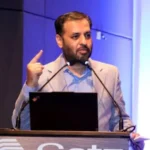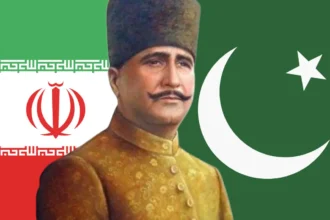Rapper and public figure Talhah Anjum sparked conversation online after responding strongly to Sindh Chief Minister Murad Ali Shah’s recent comment where he referred to infrastructure improvements as a “gift” from the government to the people. In his statement, the CM portrayed road construction and civic development as acts of generosity, but Talha quickly challenged this mindset, highlighting a core truth: basic facilities are not favours they are fundamental rights.
Talha’s reaction resonated with many citizens who feel disconnected from the priorities of political leaders. In a country where taxpayers often see poor returns on what they contribute, Anjum’s words struck a nerve. His statement wasn’t just about infrastructure it was about accountability. He emphasized that the government is not doing anyone a favour by building roads or improving infrastructure; it is their constitutional responsibility.
This public response has reignited a broader discussion about leadership and public service in Pakistan. Citizens often feel patronized by politicians who frame basic services as charitable deeds instead of necessary governance. Talha’s straightforward call-out highlights how younger voices in media and entertainment are becoming vital in holding power to account.
What makes this reaction more impactful is Talha’s growing influence among youth. When voices like his echo what the common citizen feels, it breaks through political spin. It’s not just a tweet or post it’s a wake-up call. If infrastructure is presented as a gift, then what does that make citizens? Beggars? No they are stakeholders.
The incident is real and confirmed by various verified social media accounts where the statement was originally posted and Talha’s reaction gained traction. This moment isn’t just about roads it’s about the deep shift in how the new generation views governance. Artists like Talha are refusing to stay silent, reminding those in power: you work for the people not above them.














